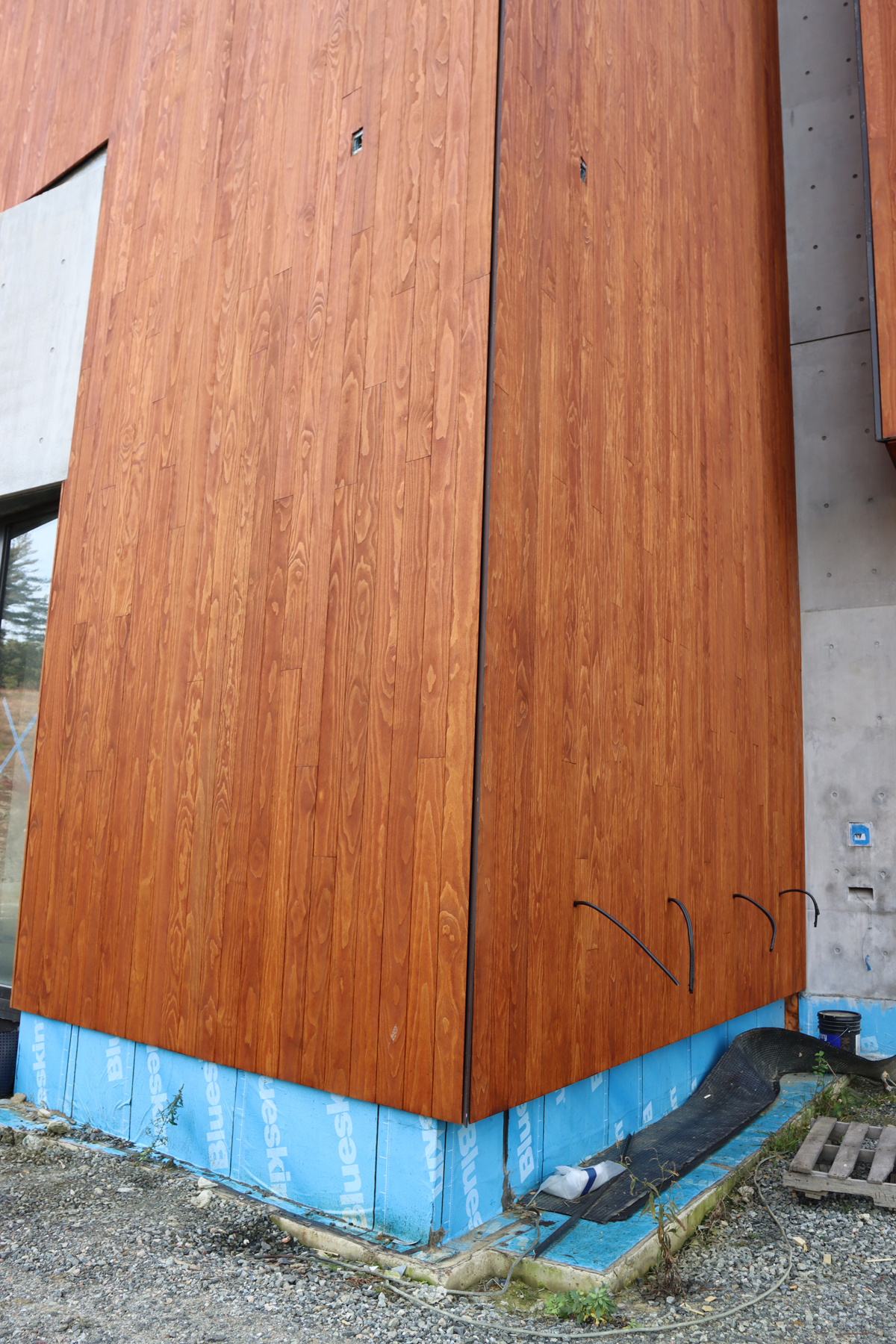






Rowan Fossil Park – Glassboro, New Jersey
DETAILS
Architect: Ennead Architects
Exterior Cladding
CUSTOM FSC®-Certified Accoya®
Species: Radiata Pine (Pinus radiata)
FSC®-Certified: FSC® mix 70%
Select Grade
Finished on face only, sealed on back & 2 long edges
1-Coat of finish factory applied, 2nd coat to be applied on site
Solid +/- 3/4″ thick x +/- 5-3/8″ wide
Tongue & Groove
Accoya Battens – FSC®-Certified Accoya®
Species: Radiata Pine (Pinus radiata)
FSC®-Certified: FSC® mix 70%
Select Grade
Unfinished
Solid 1” thick x 3-1/2” wide
Surfaced-4-Sides
Rowan University’s 44,000 sq. ft. Jean & Ric Edelman Fossil Park Museum is located in Glassboro, NJ. It sits on a 65-acre landscape and holds 66-million-year-old marine and terrestrial fossils from the end of the dinosaur era. Scheduled to open in Spring 2024, the museum is expected to draw over 200,000 visitors annually. The project prioritizes sustainability and preservation. The site-specific design will feature high-tech, interactive galleries and exhibits. This project will feature over 34,000 sq. ft. of reSAWN TIMBER co.’s CUSTOM FSC®-Certified Accoya®.
The museum will be New Jersey’s largest public net zero facility and part of the Living Building Challenge. By incorporating features such as geothermal systems, ground-source heating and cooling wells, and a photovoltaic solar field, the museum will source 100% of its energy from a combination of renewable energy available in New Jersey’s power grid and on-site generation. This design eliminates the need for fossil fuels and prevents greenhouse gas emissions. Additionally, the surrounding grounds will be revitalized to support plant and animal habitats and essential landscape elements. The building incorporates a structure made of heavy timber and cross-laminated timber, as well as wood cladding, to make the most of renewable materials.
With a project that wants to embrace sustainability, the Accoya® product is an environmentally sourced building material that aligns with its mission. Not only does it have a low carbon footprint, but it has also achieved Cradle to Cradle Platinum certification for Material Health. The acetylation process of Accoya® wood mimics nature, without adding any toxic substances.
Project Needs: The project aims to promote environmental stewardship through education and the sustainable design of the building. Ennead Lab contacted reSAWN TIMBER co. to explore exterior cladding options that were both high-performing, low-maintenance, and offered enduring color retention.
Project Solutions: The architects and designers compared different variables across multiple different species and manufacturers. After a series of custom samplings, mock ups, pricing exercises, and a visit to reSAWN’s facility, the design team chose a CUSTOM finish on Accoya wood, which not only aligned with the design goals but also offered long-term durability and peace of mind with Accoya’s 50-year warranty.
Project Results: In collaboration with the architects, reSAWN’s technical team recommended best practice wall assembly details, attachment details, terminations, etc. to ensure proper installation. reSAWN partnered with the project team to deliver their design, within budget and on time.
The award-winning architecture and research company, Ennead Lab, transforms the way buildings are designed and constructed, with a focus on creating sustainable, resilient, and equitable spaces that enhance the human experience. The lab collaborates with academic institutions, industry partners, and non-profit organizations to develop and share its research findings.
